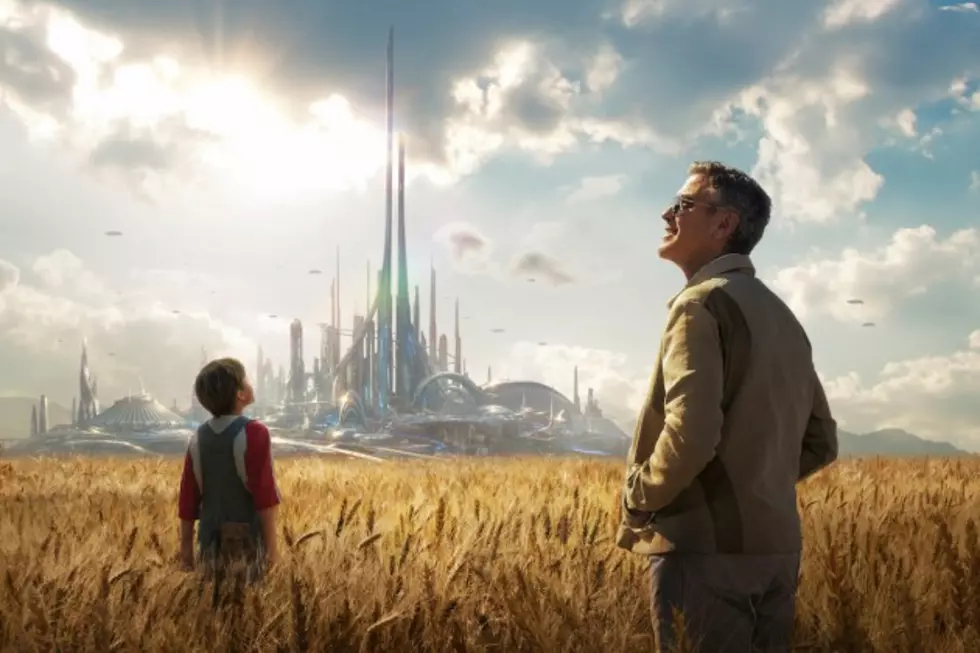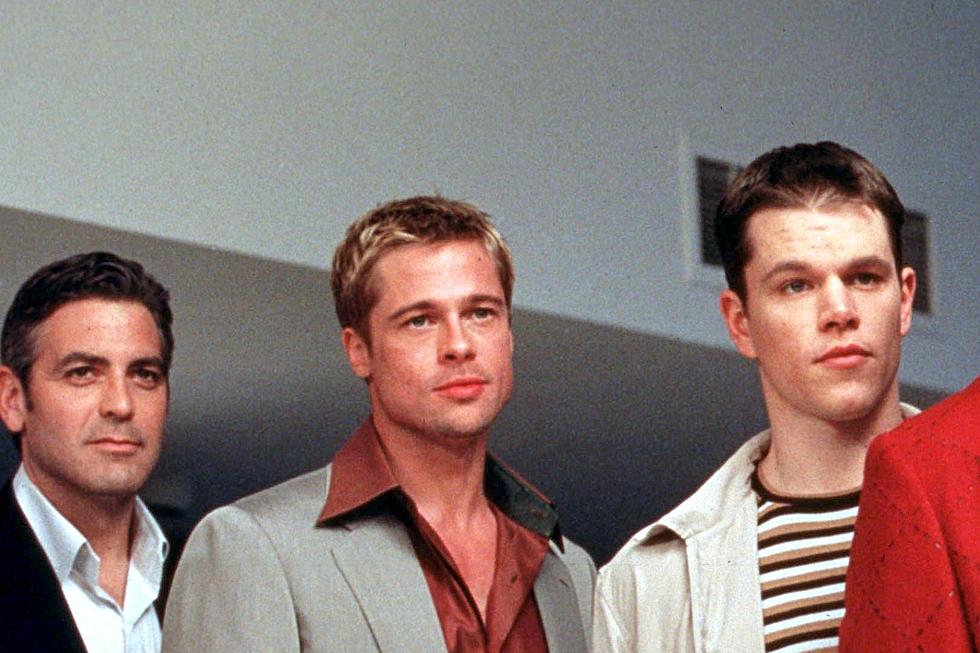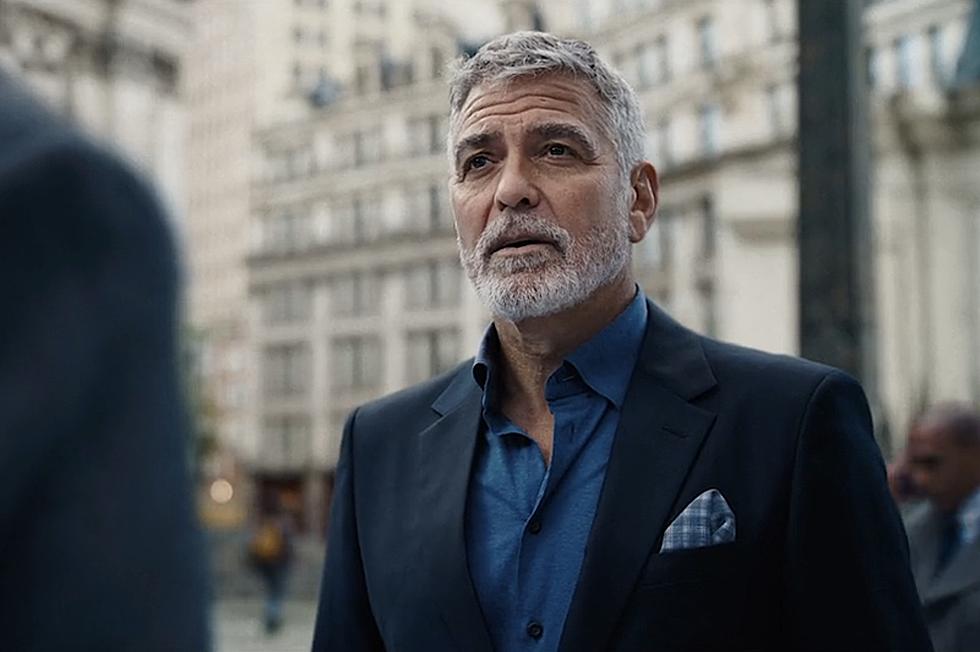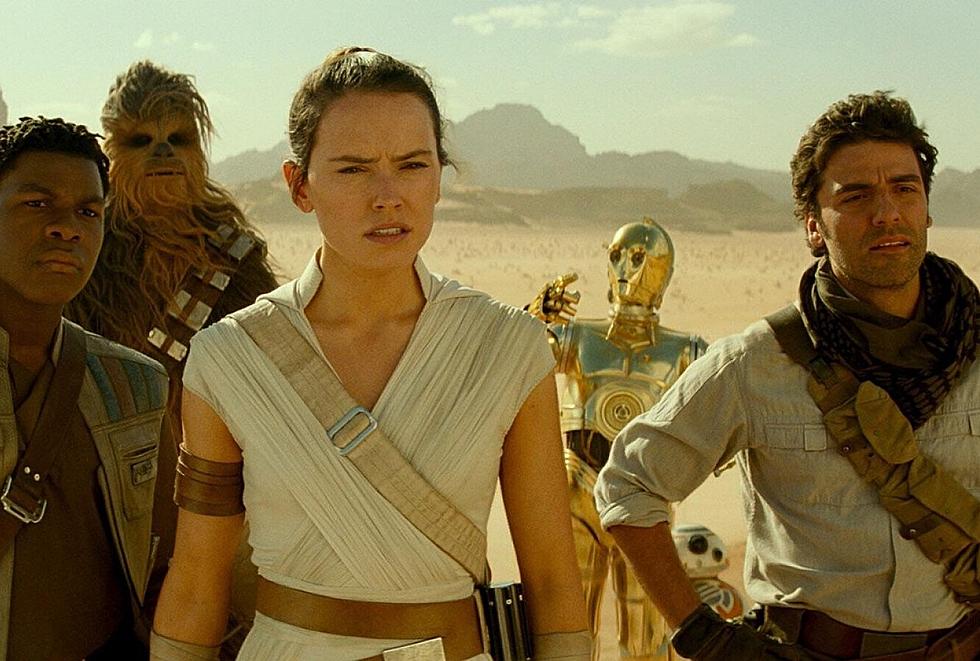
‘Tomorrowland’ Review: This Thrill Ride Breaks Down on the Way to Utopia
The best argument for Tomorrowland is its release date; one week after Mad Max: Fury Road, a film about a world destroyed by an oil war, and a week before San Andreas, in which an apocalyptic earthquake destroys half of North America. Less a blockbuster action film than a stern but well-intentioned lecture accompanied by an elaborate audiovisual presentation, Tomorrowland argues that rampant cynicism is actively poisoning our future. People become so convinced by movies like Mad Max and San Andreas that the world is doomed that they start to believe it really is. So they give up, and dystopia becomes a self-fulfilling prophecy. Tomorrowland tries, through sheer force of will and a heaping helping of bright, shiny special effects, to reverse that trend; to convince people that there’s hope for tomorrow. It doesn’t want to entertain; its goal is nothing less than to inspire an entire generation. But it might have been easier to achieve the latter if it had worked a little harder to accomplish the former.
The film comes from Brad Bird, the modern king of retro futurism. Almost all of his movies, from The Iron Giant to The Incredibles to even Mission: Impossible — Ghost Protocol are set in or inspired by a “simpler” time defined by optimism and miraculous technology. True to form, Tomorrowland begins at the 1964 World’s Fair with “There’s a Great Big Beautiful Tomorrow,” the theme song from Walt Disney’s Carousel of Progress. (Actually, if Tomorrowland hews closely to any actual ride from Tomorrowland it’s the Carousel of Progress, a lengthy, talky audio-animatronic-heavy show inside a circular theater that rotates around a central stage. Viewers enter, ride around for a while hearing how technology and optimism will improve their lives, return to the same spot they entered, and leave.)
A boy inventor, Frank Walker (Thomas Robinson), brings his homemade jetpack to the World’s Fair to enter it in a contest. A working jetpack seems like a pretty significant accomplishment for a child, but the judge (Hugh Laurie) is unimpressed. What, he wonders, is the purpose of such a device? Frank claims it’s for fun, and more importantly, inspiration. Imagine looking up in the sky and seeing people flying around with jetpacks; you’d think anything was possible. For the first of many times in the film, Bird and co-writers Damon Lindelof and Jeff Jensen announce their metaphorical intentions to the viewer. Tomorrowland is Frank’s jetpack; impractical but fun, cool-looking, and inspiring.
At least, that’s the plan; in practice, Tomorrowland feels more like a carefully researched legal argument about popular culture than a cleverly crafted piece of it. After Frank flunks his audition, he receives a second chance from a British girl named Athena (Raffey Cassidy). Then the story jumps into the future (or rather the present), where an idealistic teenager named Casey (Britt Robertson) works to sabotage the decommissioning of a NASA launch platform. When the platform comes down, Casey’s engineer dad (Tim McGraw) will lose his job, so every night she sneaks out of her family’s home in Cape Canaveral and tries to incapacitate the demolition crew’s progress. That’s when Athena, inexplicably still young fifty years after her first appearance, shows up with an invite to Tomorrowland, a magical utopia built by the greatest scientific minds of the 20th century.
Why Athena chooses Casey to go to Tomorrowland, what she needs to do once she gets there, and how that involves the grown-up version of Frank Walker (played by George Clooney) probably all fall under the vague and ever-enlarging realm of spoilers. But the plot, which does include a couple laser-gun battles, robot fights, and at least one Space Mountain cameo, is mostly just an excuse for Bird, Lindelof, and Jensen to make their case that movies and television have grown too dark and depressing. They may be right, though the notion that things were better (and at least more hopeful) in the 1960s seems to willfully ignore the strains of bleak disillusionment that were already present in science fiction back then, in films ranging from Invasion of the Body Snatchers to Planet of the Apes.
Regardless, the main issue with Tomorrowland isn’t its message, which is a noble one, but that message’s articulation, which is unexciting at best and ham-fisted at worst. Bird and company got so wrapped up in their ideas that they slighted their story, a connect-the-dots goose chase from Florida to Tomorrowland, and chose dialogue that is sometimes shockingly on-the-nose. There are no casual conversations in Tomorrowland, just earnest speeches and earnest speeches disguised as conversation (“Why are they taking the platform down?” “Because it’s hard to love ideas, and it’s easy to give up.”) Pregnant pauses hang in the air, so audiences can find the double meaning dripping off every word. (“Which way do you want to go?” Athena asks Casey during a chase scene, “Backwards or forwards?”) No one, not even robots from a magical alternate dimension, talk like this.
The movie insists over and over that Frank and Casey are geniuses, but neither gets to do or say anything particularly intelligent. Robertson mostly asks questions (so many, in fact, that at one point a robot shuts itself down rather than listen to her) while Clooney complains about her constant screaming and interrogations. (He’s not wrong.) The only real standout in the cast is Cassidy as the mysterious Athena, but the deeper Tomorrowland delves into into her character’s relationship with Frank, the more unintentionally creepy it gets. Little of the humor in the bickering banter between the characters lands, and the action sequences between our heroes and an army of indistinguishable black-suited government agents make Tomorrowland look like just the sort of grim, cynical sci-fi movie it purports to oppose.
Bird might have a point about the state of science fiction and the planet in general, but that’s all he’s got; a point, not a movie. He deserves all the credit in the world for using his clout to secure a massive budget in the service of big ideas and big ambitions. A movie called Tomorrowland could easily become a shamelessly crass advertisement for a theme park, and this is definitely not that. It’s not even really based on a theme park; it’s more of an adaptation of an emotion, namely the overwhelming excitement and limitless sense of possibility a child feels when they step into the Magic Kingdom’s Tomorrowland for the first time.
Even if Walt Disney barely gets mentioned in Tomorrowland, he probably would have appreciated its spirit of idealism and fervent belief in a brighter future. But Walt knew a thing or two about satisfying mass audiences, and he probably would have reminded Bird of a lesson from one of his company’s biggest hits: a spoonful of sugar makes the medicine go down. Tomorrowland is a bottle of cough syrup. Straight, no chaser.
More From ScreenCrush









